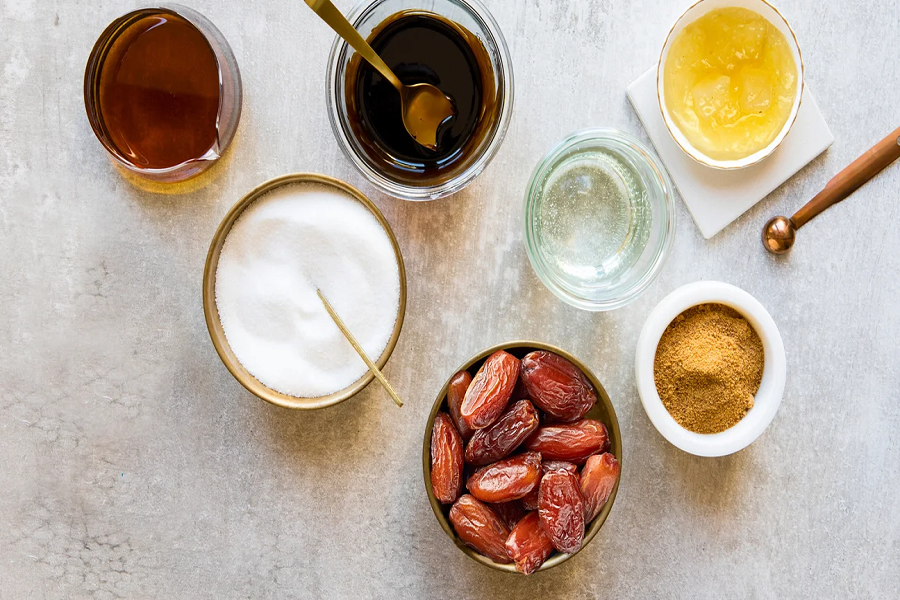Organic Allulose Sweetener: A Natural and Low-Calorie Sugar Alternative

Sugar is one of the most widely used ingredients in food, but it also comes with some drawbacks, such as high calories, dental decay, and blood sugar spikes. For people who want to reduce their sugar intake, finding a suitable alternative can be challenging. Artificial sweeteners may have unpleasant aftertastes, health concerns, or limited applications. Natural sweeteners may have fewer calories than sugar, but they still affect blood glucose levels or have distinct flavors that may not suit every dish.
Organic allulose sweetener is a new option that claims to offer the best of both worlds: a natural, low-calorie sugar substitute that delivers the same taste and functionality as sugar. But what is allulose, and how does it affect the taste and texture of food?
What is allulose?
Allulose is a rare sugar that naturally occurs in fruits like figs and raisins. It is chemically similar to fructose, which is the sugar found in fruits, but it has a different structure that makes it behave differently in the body. Allulose is absorbed by the small intestine, but it is not metabolized into glucose, so it does not contribute to calories or blood sugar levels. It is excreted in the urine without being used for energy.
Allulose has about 70{d3144949159d8321ab3e9185c49dabe6851356b9ea69e295831943a1586e2a8c} of the sweetness of sugar, so it tastes very similar to sugar, without the bitter or chemical aftertaste of some artificial sweeteners. It also has similar physical properties to sugar, such as browning, caramelizing, and dissolving in water. This means it can be used in baking, cooking, and beverages, just like sugar.
Organic allulose sweetener is made from organic, non-GMO corn, using a natural enzymatic process that converts the corn starch into allulose. It is then purified and crystallized into a white powder that looks like sugar. Organic allulose sweetener is certified organic by the USDA and has no additives or preservatives.
How does allulose affect the taste and texture of food?
Because allulose is similar to sugar in taste and functionality, it can be used to replace sugar in most recipes, with some adjustments. For example, since allulose is less sweet than sugar, more allulose may be needed to achieve the same level of sweetness. Alternatively, other natural sweeteners, such as stevia or monk fruit, can be added to enhance the sweetness of allulose.
Allulose also has some unique effects on the taste and texture of food, depending on the type and amount of allulose used. Some of these effects are:
– Allulose can enhance the flavor of other ingredients, such as fruits, chocolate, and spices, by bringing out their natural sweetness and aroma.
– Allulose can improve the mouthfeel of food, by adding moisture, smoothness, and creaminess. For example, allulose can make ice cream softer and less icy, or make baked goods more moist and tender.
– Allulose can reduce the calories and carbohydrates of food, by replacing sugar with a virtually calorie-free and carb-free sweetener. For example, a cup of sugar has 774 calories and 200 grams of carbs, while a cup of allulose has only 30 calories and 4 grams of carbs.
– Allulose can lower the glycemic index of food, by not raising blood sugar or insulin levels. This can benefit people with diabetes, prediabetes, or metabolic syndrome, who need to control their blood glucose levels. Allulose can also help with weight management, by reducing the appetite and cravings for sweets.
Why is organic allulose syrup?
Organic allulose sweetener is a natural, low-calorie sugar substitute that has the same taste and functionality as sugar, but with some additional benefits for the taste and texture of food. It can be used to replace sugar in most recipes, with some adjustments, to enhance the flavor, mouthfeel, and nutritional value of food. Organic allulose sweetener is a promising option for people who want to enjoy the sweetness of sugar, without the calories, carbs, or blood sugar spikes.
Leave a reply
You must be logged in to post a comment.











